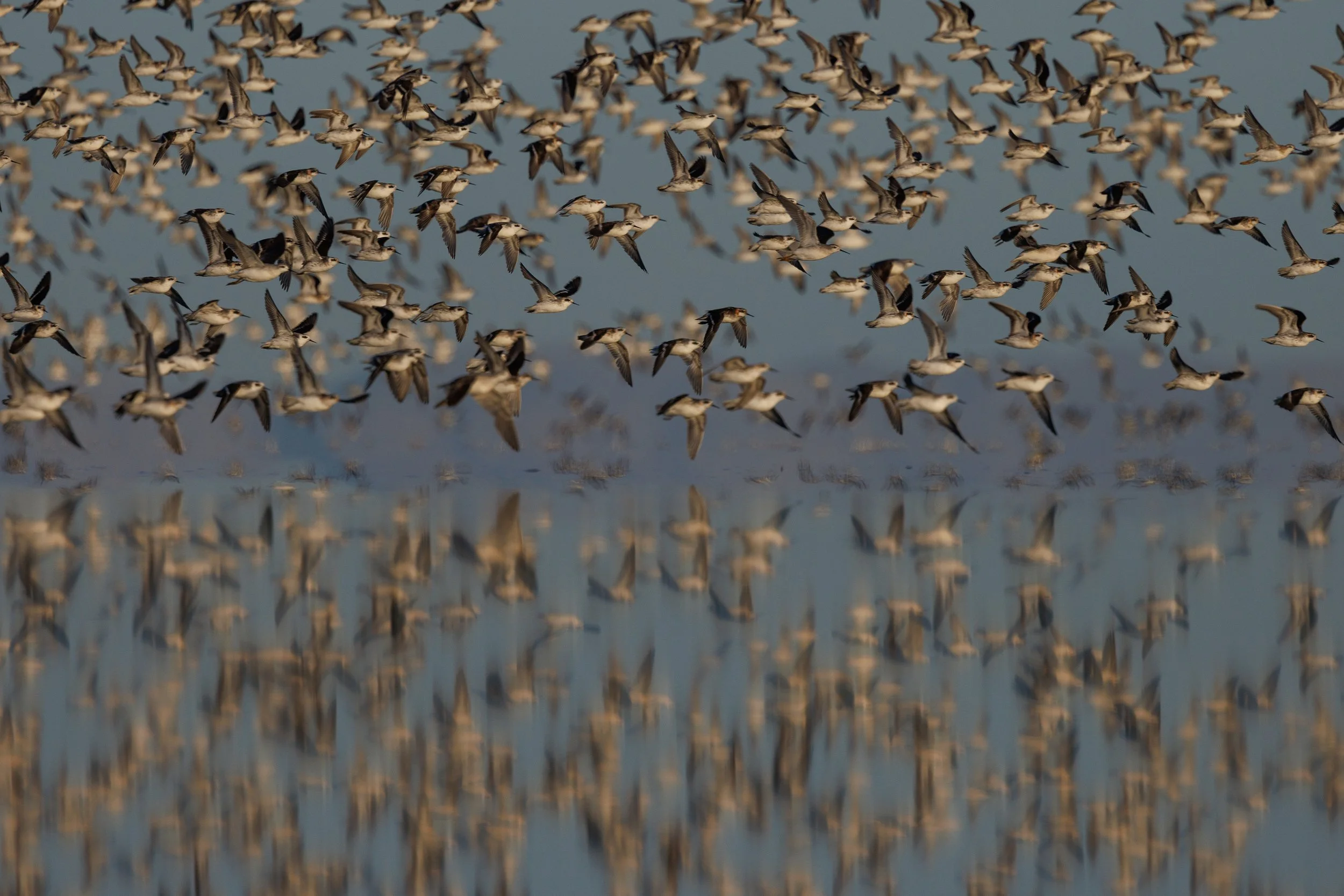Sign-ups are NOW OPEN for Utah’s Spring 2026
Shorebird Survey!
Sign-ups are NOW OPEN for our Spring Shorebird Survey, scheduled for Saturday, April 25, 2026 with a weather backup day of May 2, 2026!
We will be back trekking across Utah's wetlands to census these migratory birds and we hope you'll join us to make an impact for shorebirds. Participants are required to attend our virtual training session (or watch the recording), review all survey materials, and know basic shorebird identification.
Can we count on you to join us to count these migratory birds this April? Let us know in the form below if you're in!
Wings in a World on Fire, A Sageland Collaborative film by Sarah Woodbury, 2024.
Volunteer Resources
Surveyor Materials
Survey Plan (coming soon!)
2026 Training (coming soon!)
Utah Shorebird Identification Flashcards
Shorebird Identification Videos
Nevada Shorebird Identification - Lauren Whitenack with Great Basin Bird Observatory
Shorebird Identification 101 - Red Rock Audubon
Basic Shorebird Identification - Kenn Kaufman
Identification of Shorebirds with a Focus on Calidris - Jon Dunn and Lara Tseng
Additional Shorebird ID Cards & Slides
How to Count Birds
About the Intermountain West Shorebird Survey
Shorebirds are a diverse and fascinating group of birds that are most often associated with water. Many shorebird species make epic, long-distance migrations thousands of miles between their breeding grounds as far north as the Arctic Tundra to their nonbreeding grounds as far as southernmost South America and back again each year! Unfortunately, shorebirds in North America are facing some of the steepest population declines of any bird group.
2025 project sticker, designed by Valerie Jar.
The Intermountain West is an oasis for migratory shorebirds. A comprehensive shorebird survey was last completed across the region in 1989-1995, but much has changed in the past 30 years. Climate change, drought, development, and increasing human use of water have significantly reduced the amount and quality of available habitat and food. The Intermountain West Shorebird Survey is a collaborative effort across 11 states to replicate the census of the past so we can better sustain shorebirds into the future.
The survey objectives are:
Document the distribution and abundance of shorebirds at more than 200 survey sites during the spring and fall migrations from 2022-2026.
Use survey data to compare distribution and abundance with the historical shorebird survey from 1989-1995.
Identify factors that influence the distribution and abundance of shorebirds with the aim to provide management recommendations and conserve critical habitats.
Sageland Collaborative, along with our partners at National Audubon Society, Utah Division of Wildlife Resources, Utah Division of Natural Resources, Tracy Aviary, Point Blue Conservation Science, and the U.S. Fish and Wildlife Service work together to lead this survey effort in Utah. Each season, we train and recruit volunteers to survey areas across Great Salt Lake, Fish Springs National Wildlife Refuge, Utah Lake, and the Amalga Barrens Sanctuary. Survey teams are comprised of professional biologists and volunteer birdwatchers.
We cannot accomplish our conservation goals without your generous donation of time and expertise. Thank you!
Support shorebirds at Great Salt Lake and other wildlife in the West by donating today.
Participation At a Glance
Thank you for your interest in participating in Utah’s Intermountain West Shorebird Survey. Spring 2026 signups are now open! Sign-up today for the opportunity to be part of this region-wide effort.
Stay Current: Registered participants will receive regular newsletters with next steps, and can also check this page for updates.
Spring 2026 Survey Date: The big day is planned for Saturday April 25, 2026. The weather backup date is planned for Saturday May 2, 2026.
Training Required: Participants are required to attend a virtual training session (or watch the recording), practice shorebird identification in their own time, and review the Survey Plan and Data Form in advance (even if you have participated before).
Age: This survey is for participants 18 years of age or older.
Commitment Level = High: Learn basic shorebird identification on your own, complete a virtual training, review survey materials, and participate in a day-long project outdoors (and commit to a back-up survey date).
Requirements: Work will be in and around wet areas, requiring walking over uneven or muddy surfaces (please contact us if you have questions about accessibility and potential accommodations). Also required is an ability or willingness to learn how to identify shorebirds by sight.
Participants must review & adhere to Sageland’s Volunteer Code of Ethics.
Contact: Project Coordinator Emm Clark.
Important Stories
Lesser Known Species Highlight: Long-billed Dowitchers
Phalarope at Great Salt Lake © Sierra Hastings
Red-necked phalarope © Dorian Anderson








